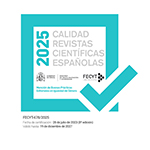Las miradas cruzadas en la ópera. Reflexiones sobre cuerpo e identidad en Bogotá en el siglo XIX
Resumen
La definición de una identidad por parte de la élite letrada de Bogotá durante el siglo XIX produjo un discurso en torno a lo civilizado. En este texto, proponemos indagar cuáles fueron los mecanismos para observar y controlar los comportamientos civilizados durante una función de ópera. Los cuerpos que se observaban eran cuerpos que, por medio de diferentes estrategias, manifestaban una identidad individual y colectiva. Las miradas cruzadas entre ellos nos permiten definir mecanismos de control y de verificación de una identidad republicana, asociada al ideal de civilización de la nueva república. La mirada del espectador-cronista era diferente según si se dirigía al proscenio, al público femenino o a los otros hombres. Esta mirada quedó consignada en las reseñas, verdaderas crónicas de una élite, cuya lectura oscila entre lo verídico y lo ideado. De esta manera, la ópera aparece como un gran teatro social, ajeno a consideraciones estéticas o artísticas.
Descargas
Descarga artículo
Licencia
La revista Cuadernos de Música Iberoamericana, para fomentar el intercambio global del conocimiento, facilita el acceso sin restricciones a sus contenidos desde el momento de su publicación en la presente edición electrónica, y por eso es una revista de acceso abierto. Los originales publicados en esta revista son propiedad de la Universidad Complutense de Madrid y es obligatorio citar su procedencia en cualquier reproducción total o parcial. Todos los contenidos se distribuyen bajo una licencia de uso y distribución Creative Commons Reconocimiento 4.0 (CC BY 4.0). Esta circunstancia ha de hacerse constar expresamente de esta forma cuando sea necesario. Puede consultar la versión informativa y el texto legal de la licencia.










